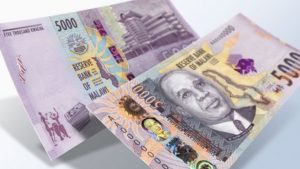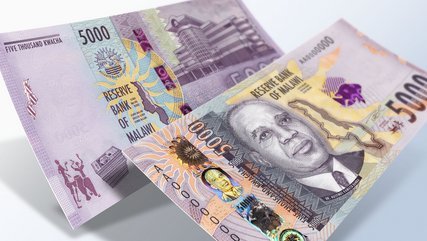By Chikumbutso Mtumodzi – Dowa
A few weeks ago, Reserve Bank of Malawi (RBM) Governor, Wilson Banda, disclosed that despite the bank making an operating profit of K93.6 billion in the last financial year, the May 2022 devaluation of the kwacha rapt its bottom line with close to K187 billion.
He also said Malawi’s foreign exchange (forex) is dwindling, a situation he said may pose challenges for the country to foot its foreign currency denominated bills.
Obviously, there is need for urgent measures to stop the hemorrhage of forex from the country and, at the same time, to come up with creative ways to generate the same. Looks like a black cat but it can be done.
There have been so many proclamations as to what Malawi must do to solve the forex conundrum. Various solutions have been thrown into the fray by different quarters. Why are we fixated at the same spot?
The most common of the solutions is that Malawi should start producing and exporting so that as a country, we start earning the much needed forex to prop-up our import cover as well as deal with various situations that require forex to solve.

In as much as this is the right way to go, we must accept that so many things are easier said than done. And I am not the only one saying this. It requires a lot of heavy lifting and often times, making unpopular decisions.
It is not ‘mission impossible’. The first thing that has to be done is to seal the loopholes that are causing forex to grow legs from this country. Forex flight from this country MUST be stopped or kept to a bare minimum.
FOREX THEFT
There is a lot of forex theft in Malawi, and to say that cases of smuggling are on the increase is an understatement.
According to recent reports, by the Global Financial Integrity (GFI), Malawi loses over $650 million (K650 billion) annually to illicit financial flows (IFFs) largely through trade misinvoicing.
This figure (K650 billion) is not small change and if put to right use, it can contribute significantly to the social and economic development of Mother Malawi.
MONEY LAUNDERING
Malawi will continue to suffer if significant progress will not be made to deal with the elephant in the room in as far as draining foreign exchange from this country is concerned.
The local press has always been flush with reports of investigations about companies that are mostly owned by Malawi residents of Asian (or Indian) origin.
These companies are often in the habit of using fake Malawi Revenue Authority (MRA) documents and shell firms in the name of importing goods from outside the country while externalising foreign currency.
These people are obviously not patriotic and do not have the interest of Malawi at the top of their agenda. Given a chance, they will do everything to run down the country and leave it reeling.
OTHER SMALL WAYS
There are also numerous other small ways through which this country loses the forex that could otherwise have been used to procure important commodities integral to the social and economic development of the country.
For example, this country has just turned into a net importer of bananas, and more recently tomato from Tanzania and Zambia. Really? Does that mean we can’t produce our own tomato?
As a result of this, the Malawian economy continues to suffer in critical areas such as the lack of medicine in hospitals; and lack of forex to procure critical commodities such as fuel.
WHAT OUGHT TO BE DONE
Obviously, to recover money lost in illicit trading, the first and most important step is to seal the loopholes. This can come in the form of reporting any suspicious activities that occur pointing to theft, money laundering or any other activities that would cause forex flight from the country.
In the case of Malawi, there have been so many calls from experts and even plebeians that it is high time we need to start producing as a country.
Kudos to the government of President Lazarus McCarthy Chakwera for its effort to create an enabling environment for investment in key economic sectors such as agriculture, mining and tourism.
The Malawi Vision 2063 is a perfect guide towards that economic nirvana, and if implemented faithfully, Malawi can take a quantum leap away from the current forex gridlock.
In the meantime, the government ought to take decisive action, not to prick small players in the peripheral, but to go for the real culprits who are really running down our economy.
DISCLAIMER: The author is writing in his personal capacity.



